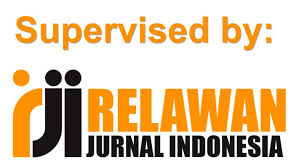An Analysis Of Hasan Hanafi's Occidentalism: Dismantling Western Epistemological Hegemony For Non-Western Knowledge
DOI:
https://doi.org/10.37092/el-ghiroh.v23i2.1267Keywords:
Oksidentalis, Teologi Islam, Hasan HanafiAbstract
This study examines the construction of occidentalism within the framework of contemporary Islamic theology, focusing on Hasan Hanafi's thought and its contribution to maintaining epistemology in the non-Western world. The aim of the study is to identify the forms of occidentalism that emerge in contemporary Islamic theological discourse. It explores Hasan Hanafi's approach to the deconstruction of Western epistemology and assesses the impact of Hanafi's thought on the development of knowledge discourse in non-Western contexts. The methods used are critical library research and hermeneutic textual analysis of Hasan Hanafi's main works, as well as a comparative study of the literature on occidentalism and epistemology in non-Western regions. The results show that Hasan Hanafi offers a systematic critique of the pretensions of universality of Western epistemology with an emphasis on epistemic plurality, the historical reconstruction of Muslim experience, and the need for an autonomous normative basis for knowledge production in the Islamic world. His thought challenges the tradition-modernity dichotomy and introduces the concept of cultural reconstruction as a strategy to restore the epistemic heritage of non-Western societies. The study concludes that Hasan Hanafi's contribution enriches contemporary Islamic theological discourse by offering a critical epistemic framework that rejects occidentalist domination and opens up space for pluralistic dialogue between local traditions and intellectual innovation.
Downloads
References
Afsaruddin, Asma, Islamic Philosophy: A Beginner's Guide, Oxford: Oneworld Publications, 2005
Berkes, Fikri, Sacred Ecology: Traditional Ecological Knowledge and Resource Management. 3rd ed. New York: Routledge,2012
Edward, Said, Reflections on Exile and Other Essays, New York: Granta Books, 2000
Hanafi, Hasan, Al-Fikr al-Islami wa al-Hadarat al-Gharbiyyah, Kairo: Dar al-Tanwir, 2002
……………, Epistemologi dan Metodologi Ilmu Pengetahuan. Jakarta: Penerbit Mizan, 2010
……………., Oksidentalisme: Sebuah Pembacaan Kritis, Jakarta, XYZ,2003
……………., The Crisis of Modernity, Cairo: Dar Al-Tanwir, 2000
……………, Islamic Epistemology. Cairo: Dar Al-Fikr, 2001, h.250-275
……………, The Western Epistemological Model: A Critical Analysis, Kairo: Dar Al-Fikr, 2004
……………, Islam and Globalization, Kairo: Dar Al-Tanwir, 2010
……………, Kritik Terhadap Sekularisme dan Implikasinya bagi Masyarakat Muslim,Yogyakarta: LKiS, 2007
…………., Rasionalitas dan Etika dalam Pemikiran Islam, Yogyakarta: Kanisius, 2018
Intergovernmental Panel on Climate Change (IPCC), Climate Change The Physical Science Basis, Cambridge, Inggris, Cambridge University Press, 2021
Muhamad Hossain, Digital Connectivity and the Muslim World: Trends and Implications. Journal of Islamic Studies, 31(2), 2020
Pew Research Center. The Digital Divide: A Global Perspective. Pew Research Center.2021
Ramadan, Tariq, Islam, the West and the Challenges of Modernity. Oxford: Oneworld Publications, 2001
UNESCO, Literacy Rates in the Muslim World, UNESCO Institute for Statistics, 2020
Wadud, Amina, Qur'an and Woman, Oxford: Oxford University Press, 1999
Wadud, Amina, Inside the Gender Jihad." Oxford: Oneworld Publications,2006
World University Rankings, Laporan tahunan, 2022
Downloads
Published
How to Cite
Issue
Section
License
Copyright (c) 2025 Lukman, Wawan Sopiyan

This work is licensed under a Creative Commons Attribution-NonCommercial-ShareAlike 4.0 International License.









